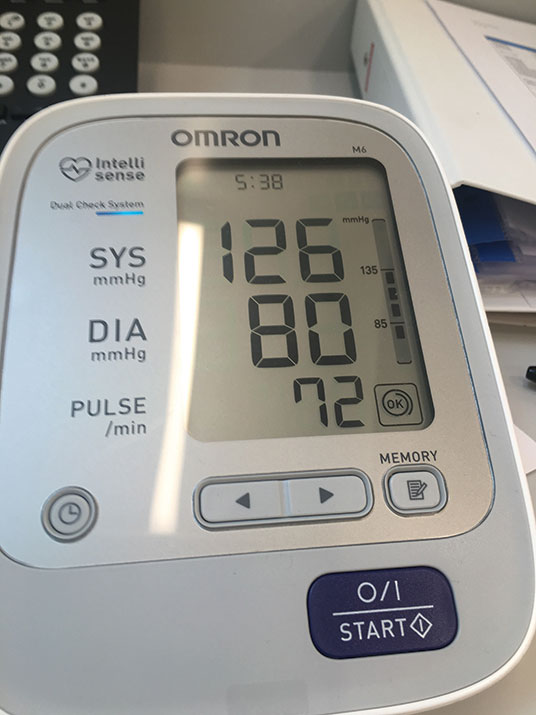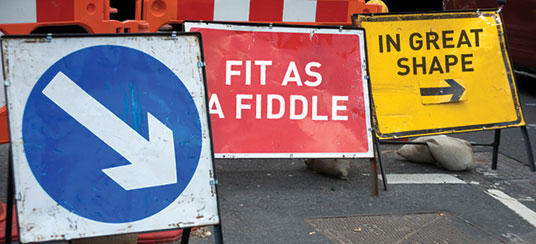There are 9.5 million people in the UK who have been diagnosed with High Blood Pressure. This figure is according to recent statistics from the Stroke Association. Unfortunately, for every ten-people diagnosed with high blood pressure, seven remain undiagnosed and untreated. This is alarming considering diagnosis can be made with a simple, non-invasive test – a blood pressure check by a nurse or GP. Once diagnosis is made and appropriate treatment commenced, the risk of heart attacks, strokes and heart failure is significantly reduced.
High blood pressure, also known as Hypertension, is a blood pressure of 140/90mmHg or higher and is a preventable cause of premature death (National Institute for Health and Care Excellence)2017.
Telehealth is a recent concept in Hypertension management, and involves using electronic technology to monitor patients’ vital signs, such as blood pressure, in their homes. It is usually used in GP practice settings with the bonus being for patients to take control of their health. Although Telehealth is appropriate for some people, lack of compliance and a few challenges with using electronic equipment may mean that not everyone is able to benefit from this service. It is becoming increasingly clear that individuals can benefit from regular contact with health professionals. If not only for regular health check-ups but also advice and key health information to reinforce healthy and positive behaviours.
In order for a car to pass its MOT, it needs to be looked after and undergo regular maintenance. Your body is no different. Regular health checks can help to detect problems early, when chances for treatment and cure are greater.
Good health begins with prevention and maintaining a healthy lifestyle.
For construction workers to enjoy a longer and healthier life and increase levels of productivity, it’s advisable for them to take ownership of their health.
This begins with having regular blood pressure checks as working on heights with a high blood pressure is not advisable.
In addition, regular blood glucose checks can help in detecting diabetes, which is a serious chronic disease that can lead to short and long-term complications such as heart disease and vision loss.
As a health professional, my recommendation to construction workers would be:
1. Eat Healthy: Eating healthy is beneficial for every aspect of your life. A poor diet can make you lethargic and reduce your concentration levels. Poor concentration leads to making serious errors. This can be detrimental in construction. Avoid processed, high-sugar snacks that provide a brief burst of energy. You can bring in healthy snacks such as nuts and fruits. Eat foods rich in carbohydrates as these give you the energy required for working on site.
2. Avoid Alcohol (in excess): Men are advised not to drink more than 14 units a week. This is equivalent to six pints of beer and ten small glasses of wine. Drinking alcohol can lead to feeling sick, hungover and tired. This leads to inefficiency on site and can cause serious harm to the individual or colleagues on site.
3. Regular Exercise: Construction workers are usually physically fit due to the nature of the work. However, it is advisable to stay active outside of work. 30 minutes of brisk walking per day is the recommendation from the British Heart Foundation. Walking is not only a great stress reliever but it’s also free.
4. Get a Good Sleep: According to research by The Sleep Council, the average Briton gets just over six hours sleep per night. The quality of sleep is just as significant as the amount. Avoid going to bed with your phone and learn to switch off. Serious mistakes that are otherwise avoidable can happen when you don’t get enough sleep.
5. Work/Life Balance: It is imperative to not work extreme hours when working in construction. Ensure you get to spend time with friends, family and get to do the things you enjoy. This will not only improve your physical health but also your mental health and wellbeing. If you feel you are on the brink of a burnout, it’s advisable to escalate this to a line manager. People can only help when they are aware there’s a problem. Avoid burnout as you will do a disservice to yourself, family and employer. When you enjoy your work you significantly reduce stress levels.
Keep your health in check as it’s your best asset.
A healthy employee is an asset to its organisation and likewise good health is an asset to the individual.
By Abigail Morakinyo, founder www.healthincheck.co.uk.




